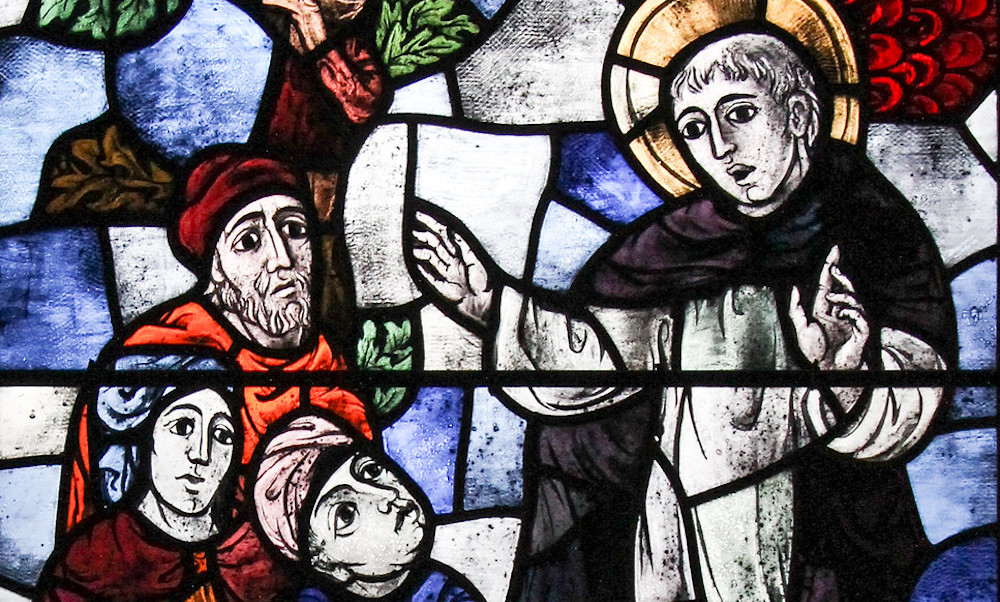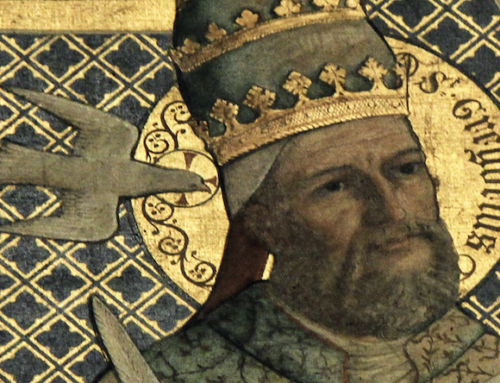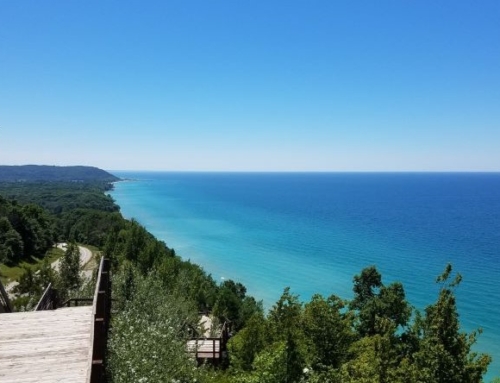Forma Vitae: An Essay on the Dominican Life
A “forma vitae” essay is meant to convey something about the “form of life” that we, as Dominican friars, live in virtue of our religious vows. Each “forma vitae” essay should provide accessible, insightful, and revealing commentary about the Dominican life and vocation. Other “forma vitae” essays can be found here.
There is absolutely nothing better you could do than to contemplate God.
The purpose of life and the true path to happiness is to know and love God. Contemplating God perfectly achieves this: it is the mind’s gazing with delight on God, by which one knows God as perfectly as possible and consequently loves him as perfectly as possible. There is no better way to love God than to know him. This is what the saints do forever in heaven: contemplating God perpetually, they love him perfectly and are perfectly happy. Of course, contemplating God like this is only possible by his free gift of grace. Yet, even while still here on earth, God pours forth this grace and invites us to contemplate him. This contemplation will be imperfect and often interrupted, but it is the beginning even now of the perfect love and happiness of heaven.
So, who wouldn’t want to spend as much time as possible contemplating God? To do this, one must dispose himself to receive the grace of contemplation.
Some people are called to dispose themselves by organizing their whole lives to “maximize” their contemplation of God. Take monks, for example. They live in a cloister, apart from the busyness of the world that could distract from God; they keep strict silence to allow their minds to rise to God; they mortify and train themselves to free their minds to remain gazing on God; they read sacred texts to fill their minds with thoughts of God. This monastic form of life is itself a gift of God’s grace, and by living it monks are formed into loving contemplatives of the Lord.
Dominican friars also strive to “maximize” their contemplation of God. Like monks, we live lives of prayer, cloister, silence, penitential discipline, and sacred reading, and we jealously guard these monastic observances. Dominican friars, however, also leave the cloister and go forth to preach.
Monks, on the other hand, may do some preaching, but this is by way of exception. Monks are primarily contemplatives, not preachers. Going off to preach would force them to depart from the cloister and to entangle themselves with the world, and this would hinder contemplation. They certainly think preaching the Gospel is a great good, but the contemplation of God is better, so they avoid preaching for the sake of contemplation.
What does that make us Dominican friars then? Are we sacrificing the contemplative life for the sake of preaching? Are we diet monks? Half-contemplatives?
No. The Dominican friar is to be 100% a contemplative and 100% a preacher. Where the monk avoids engagement with the world in order to contemplate God, the friar must engage the world and preach or else his contemplative life will wither. The grace of Dominican life, which is the ideal and form of our life, is distinct from the monk’s. Consequently, the way Dominicans are formed into contemplatives is also different.
Preaching is the key to unlocking what Dominican contemplative life looks like. Far from hindering our contemplation, preaching vivifies it. Prayer, study, common life, our vows, the cloister, the cell, the habit, silence, penance, etc. are all ordered through contemplation to preaching and then back to contemplation. Contemplation overflows into preaching and preaching redounds back to greater contemplation. The two form a dynamic harmony and mutual support so that they increase and intensify one another, allowing the friar who lives this graced life faithfully to love God immensely and save myriad souls.
This is an audacious life. We are bold enough to strive to live as the apostles, as contemplative preachers. In fact, we must be so bold, for to strive for anything less would be to betray the grace of our life, which God first gave to St. Dominic and continues to pour forth on his sons.
✠
Photo by Fr. Lawrence Lew, O.P. (used with permission)







